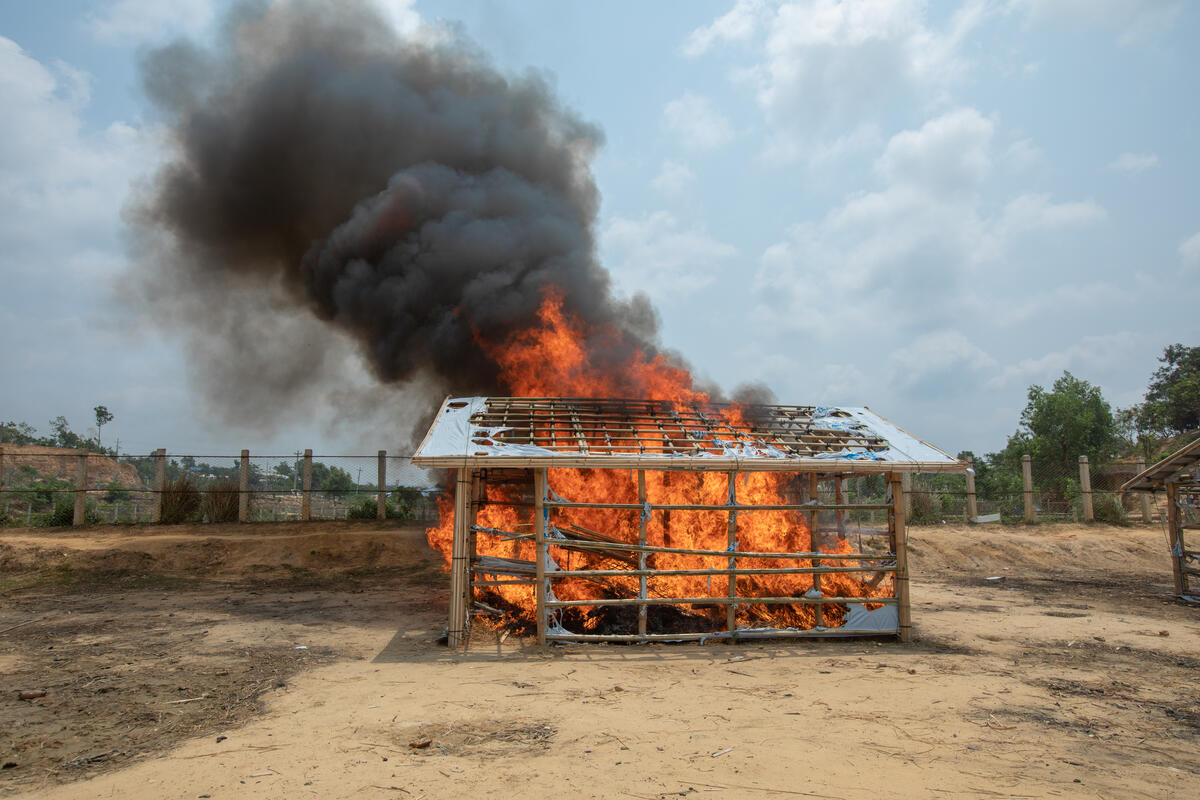As war grinds on in Yemen, Somali refugees eye return
As war grinds on in Yemen, Somali refugees eye return

LAHJ, Yemen – Somali mother Barei Ibrahim has been living in Yemen for 26 years, after war drove her from her home country in the early nineties.
But as the bitter conflict grinds on in Yemen, devastating lives and infrastructure and destroying work opportunities, conditions have become increasingly tough for the mother-of-ten.
“I don’t have anything here,” she tells UNHCR, the UN Refugee Agency. “I don’t have a job or a future and we are facing difficulties. We are begging to get by and are living in sorrow and grief.”
Ibrahim is not alone. As the conflict that erupted in March 2015 continues, the humanitarian situation in Yemen is deteriorating. The conditions facing the almost 280,000 refugees in-country are worsening and their needs are growing by the day.
“An increasing number are now approaching UNHCR for assistance to support their return."
The overwhelming majority of refugees in Yemen, 91 per cent or some 255,000, are Somalis like Ibrahim who have been coming to the country for more than two decades, seeking safety and opportunities.
Though Yemen has traditionally been very generous in accepting those in need of international protection and is the only country in the Arabian Peninsula signatory to the Refugee Convention and the Protocol, the ongoing war has limited the capacities to provide adequate assistance and protection to refugees.
“After more than two years of war, many refugees face increased hardship; struggling to cover basic needs, losing livelihoods and lacking access to basic and essential services,” UNHCR spokesperson Babar Baloch told a news briefing in Geneva on Friday (May 19).
With conflict in Yemen hitting civilians hard, killing and injuring many and causing widespread hunger, some 30,600 Somalis have reportedly already returned to Somalia from since hostilities broke out in March 2015.
“An increasing number are now approaching UNHCR for assistance to support their return, citing safety and security concerns and limited access to services in Yemen,” Baloch told reporter at the Palais des Nations.
Among those thinking of returning is Mohammed, a Somali who fled to Yemen 12 years ago, and is now living at Kharaz refugee camp in Lahj governorate.
“I don’t have a job or a future and we are facing difficulties. We are begging to get by."
“Life was very good in Yemen before, but now it is very hard for us because of the war. I just want to go back to Somalia to live in peace,” says Mohammad, who asked not to be identified by his last name.
UNHCR is now providing some support to those choosing to return on their own. In 2017, UNHCR is able to assist up to 10,000 Somali refugees who have made the choice to return, based on the information received at Return Help Desks on conditions in Somalia and the assistance package that is being offered both in Yemen and Somalia,
Baloch said UNHCR’s humanitarian operations in Yemen will continue to provide support to those refugees who remain in Yemen.
Most Somali refugees registered in Yemen originate from Banadir, Lower Shabelle, Bay, Middle Shabelle and Woqooyi Galbeed regions in Somalia. In Yemen, most reside in Aden, Sana’a and Lahj governorates, the latter of which is where Yemen’s only refugee camp, the Kharaz refugee camp, is located.
UNHCR assistance will include documentation, travel and transportation assistance and financial support in Yemen to facilitate the journey, as well as assistance upon arrival in Somalia. Special measures will be put in place for the travel of individuals with specific needs. Most refugees opt to return to Mogadishu, in the anticipation that assistance and services will be more accessible and available.
In Yemen, UNHCR has been providing protection and services for refugees and asylum seekers including by providing legal assistance, supporting education and livelihoods programs, and providing access to health and pyscho-social services, a cash programme for people with specific needs amongst others.









